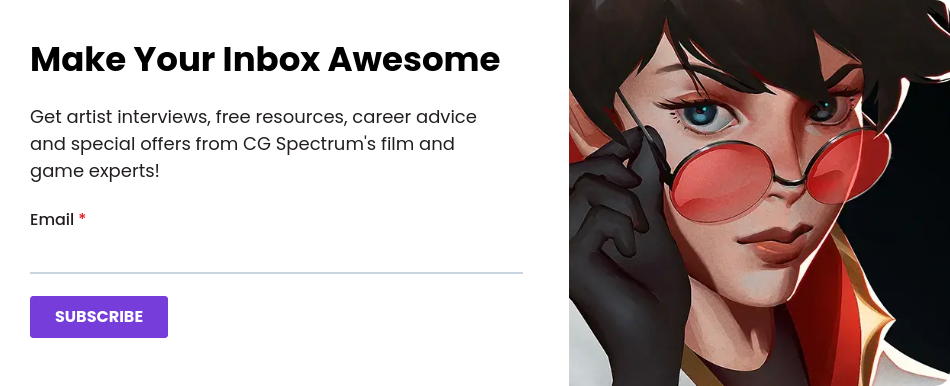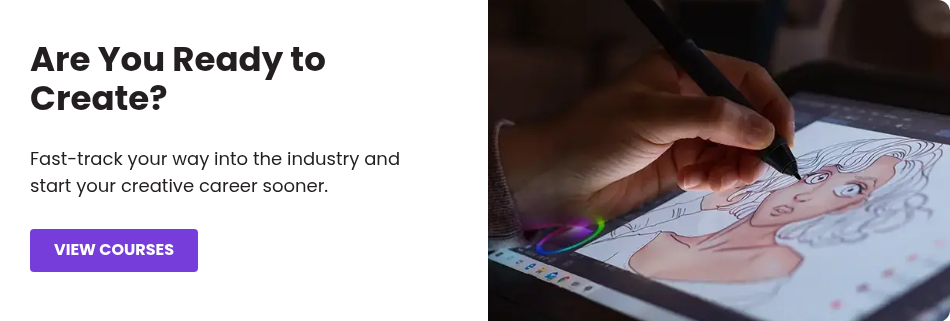Choosing the right creative course is not just a decision that will impact you for the duration of your studies; it's a decision that can shape your future in the film and games industry. We delve into some of the essential questions you should be asking education providers before enrolling to ensure their offerings align with your learning and career goals.
Who teaches the course?
When exploring a film and games training provider, make sure you note the qualifications and real-world experience of their teachers. Look for institutions whose instructors have actual industry experience along with their academic experience—artists who have put their knowledge into practice.
Instructors with experience in film and games studios can bring a wealth of practical knowledge to your lessons, including industry workflows, creative processes and procedures, and the intricacies of the production pipeline. These insights go beyond textbook knowledge, giving you a deeper understanding of the industry's complexities and the ability to anticipate and adapt to its dynamic landscape better.
How do students interact with their instructors?
A school’s mode of teaching can significantly impact the quality of a course. Are classes just pre-recorded videos that basically leave you to your own devices, or do you get the opportunity to interact with your instructor in real time?
Being able to ask questions, seek clarification, and engage in discussions with your teachers and peers in a live setting is invaluable and can help you tailor the attention and feedback you receive to your unique creative journey.
Real-time interaction also promotes a more engaging learning environment where you can actively participate, collaborate, and gain insights as the course progresses, building your comprehension and skills at a more accelerated pace.
Who creates (and approves) the course?
Quality course content is imperative if you want to succeed in the creative industries. Look for schools in which the courses have been created in-house by experts with both teaching and industry experience. Experienced film and games professionals will be able to infuse relevant industry trends, technologies, and best practices within the course content.
Educators with both industry and teaching experience are also likely to structure the material in a manner that promotes more effective learning, breaking down complex concepts into manageable, digestible components so you can grasp and apply relevant principles more easily.
One way to determine a quality curriculum is to check whether or not an education provider's courses have been vetted by a trusted third party, like a regulatory body, or are backed by an industry provider (for example, if you want to learn Unreal Engine and the school is an Unreal Engine Authorised Training Centre). And remember, you can always judge the course content yourself by examining a school's course guide.
What is the student success rate?
A high student success rate can indicate you’ll be learning skills that will help you land a job in the industry after graduating. When a significant number of students from a particular institution successfully transition into the film and games industry, it suggests that the skills and knowledge imparted are not only valuable but also highly relevant to the job market. You can feel more confident that you're investing your time and resources in acquiring skills that are in demand and will likely boost your employability.
Schools with high success rates often go the extra mile to provide comprehensive support to their students, including career counseling, job placement services, and ongoing training opportunities that give graduates a competitive edge in the job market.

What software is taught (and is it included in the cost)?
Not every industry studio will use the same software. However, there are definitely more widely used vendors across film and games, such as Autodesk, Adobe, Toon Boom, Unreal Engine, The Foundry, and SideFX.
Studying at a school that teaches industry-standard software can help you acquire the practical skills and proficiency required to hit the ground running in the competitive film and games industry.
One way to determine if a school is teaching relevant software is to cross-check the software listed in job descriptions at studios you want to work at and see if they match up with those being taught in your course.
What partnerships does the school have?
Does the school have any partnerships you could leverage down the track? Good education facilities will work closely with leading film and game studios. Similar to being vetted by a third party, partnerships help ensure schools provide quality courses with industry-relevant content.
Partnerships can also offer valuable opportunities for students to attend exclusive events featuring guest speakers and recruiters from partnering studios, as well as career opportunities such as work experience and internships to help further industry knowledge.
Where is the school located?
Most students don't want to move house or face a difficult and expensive commute to attend their film and games school. Online learning can remedy these issues. The accessibility of online courses provides the flexibility to learn without the hassle of a time-consuming commute, assisting in balancing your other life commitments and avoiding the financial strain of relocating.
While convenience and flexibility are commonly accepted as benefits of online study, there are also some lesser-known advantages. With online classes, you often gain access to a more global community, including film and game experts from all over the world, while learning in a more intimate environment (rather than a physical lecture hall filled with hundreds of students).
What else do they offer?
Consider the additional selling points that make an education provider unique. Do they offer career advice and counseling? Are there free expert-led talks and events on offer? Do they organize fun extracurricular activities and student challenges? Is there a strong sense of community to make your learning experience more enjoyable and collaborative?
Extracurricular community activities and student challenges can foster a dynamic learning environment, which can make your educational journey more enjoyable and collaborative and enhance your creative development and networking capabilities.
Education is an investment in your time and money, and the school you decide upon can impact not only your learning experience but also your future career. By asking these necessary questions of potential education providers, you can feel confident that your selected course aligns with your learning objectives and will set you on a creative path to success.
Feel confident in your education and your future with CG Spectrum
At CG Spectrum, our career-focused courses are crafted by industry experts and academics to ensure you're gaining relevant skills and unique industry insights.
You'll also join our convivial online community, which is filled with fellow creative students, graduates, and industry professionals — a great way to network, learn, and have fun.
CG Spectrum's courses are designed for a successful learning journey that leads to a thriving career!

Related Links




